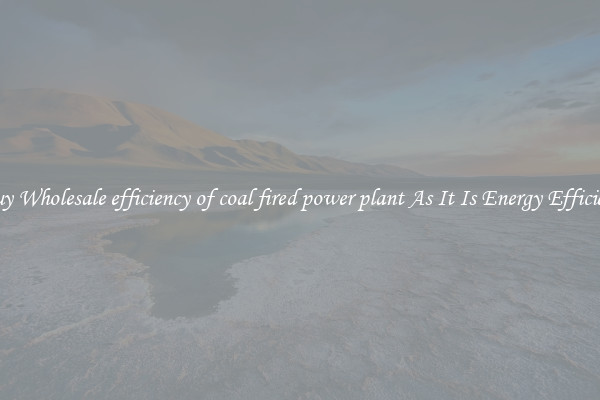Buy Wholesale efficiency of coal fired power plant As It Is Energy Efficient
Coal-fired power plants have long been criticized for their negative impact on the environment due to the high levels of carbon emissions they produce. However, it is essential to recognize that there have been significant improvements in recent years to enhance the efficiency of coal-fired power plants. These advancements not only reduce the carbon footprint but also contribute to a more sustainable and energy-efficient future.

One of the key methods employed to increase the efficiency of coal-fired power plants is the adoption of more advanced technology. Modernized coal-fired power plants can achieve thermal efficiencies of up to 45%, compared to the 33% efficiency that older facilities typically achieve. This significant improvement is achieved through the use of supercritical and ultra-supercritical boilers, which operate at higher temperatures and pressures to maximize energy production. By increasing the temperature and pressure, coal can be burned more efficiently, thereby generating more electricity with the same amount of coal.
Moreover, the introduction of flue gas desulfurization (FGD) systems is another key factor that contributes to the energy efficiency of coal-fired power plants. FGD systems remove sulfur dioxide from the flue gas before it is emitted into the atmosphere. This not only reduces the harmful emissions but also improves the efficiency of the power plant. By removing sulfur dioxide, the power plant can generate more electricity from the same amount of coal, making it more energy-efficient.
Additionally, coal-fired power plants can implement cogeneration systems to further enhance their overall efficiency. Cogeneration, also known as combined heat and power (CHP), allows power plants to simultaneously produce electricity and useful heat from a single fuel source. By utilizing both the electrical and thermal output of the power plant, cogeneration systems can achieve thermal efficiencies of up to 80%, far surpassing the typical efficiency values of conventional power plants. This not only reduces energy wastage but also provides a more sustainable solution for meeting the energy demands of industries and communities.
In conclusion, contrary to widespread criticism, coal-fired power plants have made significant strides in improving their efficiency and reducing their environmental impact. Through the adoption of advanced technologies, such as supercritical boilers and FGD systems, these power plants have become more energy-efficient, allowing for greater electricity generation with fewer carbon emissions. Moreover, cogeneration systems further enhance efficiency by utilizing waste heat for additional purposes. As we transition towards cleaner energy sources, it is crucial to acknowledge the efforts made by coal-fired power plants to contribute towards a more sustainable and energy-efficient future.

View details

View details

View details

View details







